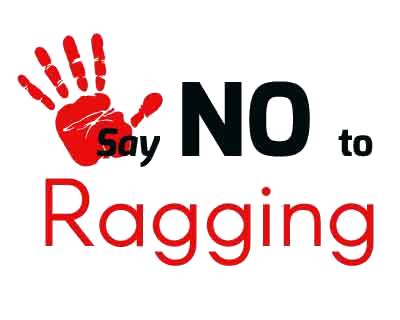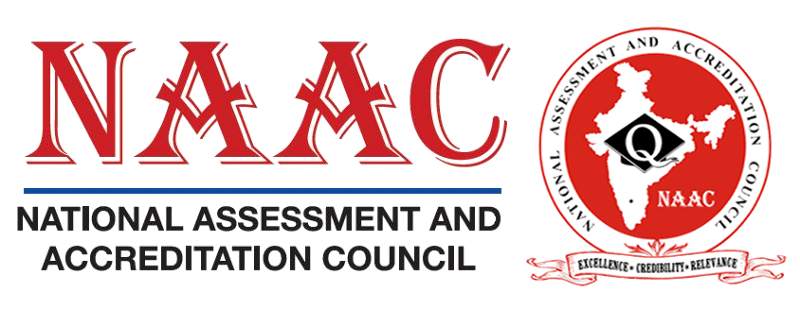
Ragging is strictly prohibited in Rajendra Academy for Teachers’ Education, inside and/or outside the campus. Ragging is neither a means of familiarization nor a proper measure of introduction with the newly admitted students. Humanitarian values should always be respected. Anti Ragging Committee and Anti Ragging Squad has been framed for preventing any incidence of ragging within the College campus. Members of the Committee and Squad shall make surprise checks in the hostels, canteen, playground, etc.
The College has the following policies regarding prevention of ragging.
• Hostel Wardens are made accessible round the clock.
• Anti-Ragging Helpline and Websites are displayed on notice boards within the premises in order to help the fresher’s.
• Punishments for ragging as per the UGC regulations have been posted on all notice boards.
• Students in the hostel are allowed to use mobile phones in hostel to reach out for help from teachers, parents and other authorities of the College.
• Anti-Ragging details are updated in the College website.
• The Principal of the College addresses the students in the orientation programme and educates them about their rights against harassment including ragging.
What Constitutes Ragging?
Any Conduct whether by words spoken or written or by an act which has the effect of teasing ,treating or handling with rudeness any other student, indulging in any untoward or undisciplined activities which causes or is likely to cause annoyance, hardship or psychological harm or to raise fear apprehension thereof in a fresher or a junior student or asking the students to do any act or perform something which such student will not in the ordinary course and which has the effect of causing or generating a sense of shame or embarrassment so as to adversely affect the physique or psyche of a fresher or a junior student.
Acts covered under Ragging:
1. Any conduct by any student or students whether by words spoken or written or by an act which has the effect of teasing, treating or handling with rudeness a fresher or any other student;
2. Indulging in rowdy or indiscipline activities by any student or students which causes or is likely to cause annoyance, hardship, physical or psychological harm or to raise fear or apprehension thereof in any fresher or any other student;
Asking any student to do any act which such student will not in the ordinary course do and which has the effect of causing or generating a sense of shame, or torment or embarrassment so as to adversely affect the physique or psyche of such fresher or any other student;
3. Any act by a senior student that prevents, disrupts or disturbs the regular academic activity of any other student or a fresher;
4. Exploiting the services of a fresher or any other student for completing the academic tasks assigned to an individual or a group of students;
5. Any act of financial extortion or forceful expenditure burden put on a fresher or any other student by students;
6. Any act of physical abuse including all variants of it: sexual abuse, homosexual assaults, stripping, forcing obscene and lewd acts, gestures, causing bodily harm or any other danger to health or person;
7. Any act or abuse by spoken words, emails, post, public insults which would also include deriving perverted pleasure, vicarious or sadistic thrill from actively or passively participating in the discomfiture to fresher or any other student ;
8. Any act that affects the mental health and self-confidence of a fresher or any other student with or without an intent to derive a sadistic pleasure or showing off power, authority or superiority by a student over any fresher or any other student.
Powers and Functions of the Anti-Ragging Committee:
1. To uphold and comply with the directions of the Hon'ble Supreme Court and be vigilant on nay acts amounting to ragging;
2. To publicize to all students and prevalent directives and the actions that can be taken against those indulging in ragging;
3. To consider the complaints received from the students and conduct enquiry and submit report to the Anti- Ragging Committee along with punishment recommended for the offenders;
4. To oversee the procedure of obtaining undertaking from the students in accordance with the provisions;
5. To conduct workshops against ragging menace and orient the students;
6. To provide students the information pertaining to contact address and telephone numbers of the person(s) identified to receive complaints/distress calls;
7. To offer services of counselling and create awareness to the students;
8. To take all necessary measures for prevention of Ragging inside the Campus/ Hostels.
Procedures for addressing incidence of Ragging:
1. The information on ragging can be received in the following manner:
• Through the notified contact details of the Committee members, and national help-line number on ragging for necessary relief in terms of the provisions of the UGC Regulations.
• Through any other member of the College.
• From any external sources.
2. In the event of receipt of information of ragging by any of the officers mentioned above, he/she will promptly alert/inform the Chairman of the Anti-Ragging Committee of the College or any of its members. The activity shall be completed, at the most, within two hour of receipt of this information.
3. The Anti-Ragging Committee of the College shall promptly conduct a preliminary on the spot enquiry and collect details of the incident as available prima facie. The preliminary investigation and details of the incident shall be immediately brought to the notice of the Chairman of the College. The activity shall be completed, at the most, within twenty four hours of receipt of information.
4. The Anti-Ragging Committee of the College shall promptly conduct enquiry into the incident as per provisions laid down in Clause 6.3(e) of the UGC Regulations.
5. The Anti-Ragging Committee of the College shall complete the enquiry and submit its report along with recommendations to the Chairman of the Anti-Ragging Committee of the College within fifteen days of the incident.
6. Thereafter, the said report and recommendations shall be considered by the Anti- Ragging Committee for deciding the punishment on the erring students in terms of provisions contained at Clause 9.1 of the UGC Regulations.
Punishments due to Ragging: Depending upon the nature and gravity of the offence as established the possible punishments for those found guilty of ragging at the Institution level shall be any one or any combination of the following:
• Cancellation of Admission.
• Suspension from attending classes.
• Withholding or withdrawing scholarship and other entitled benefits.
• Debarring from appearing in examination or other evaluation process including withholding of results.
• Debarring from representing the College in any regional, national or international meet or events.
• Suspension or expulsion from the College hostel.
• Rustication from the College for period ranging from 1 to 4 semesters.
• Expulsion from the College and consequent debarring from admission to any other Institution or Colleges.
Steps taken to curb Ragging:
• Complaint box is kept in the prominent place in the college.
• In the orientation programme conducted for the First Year in the beginning of the academic year, the students were instructed about the steps taken by the institution to curb ragging.
• In the class committee meetings held twice in a semester the first year students were provided with an opportunity to voice out their opinion about ‘ragging menace’ in the campus.
• During ward meetings, conducted periodically, the Tutors enquire the students about ragging
• HOD’s of all the departments were instructed to keep a strict vigil to curb ragging.
• Hostel wardens were asked to carry on periodic supervision to check ragging at the hostel premises.
• Boards are displayed in the prominent places in the college premises and hostels, warning the student against ragging.
• The whole campus is under CCTV surveillance and the movements of the students monitored.
• Toll-free Anti-ragging Help Line number is printed in their ID card.














